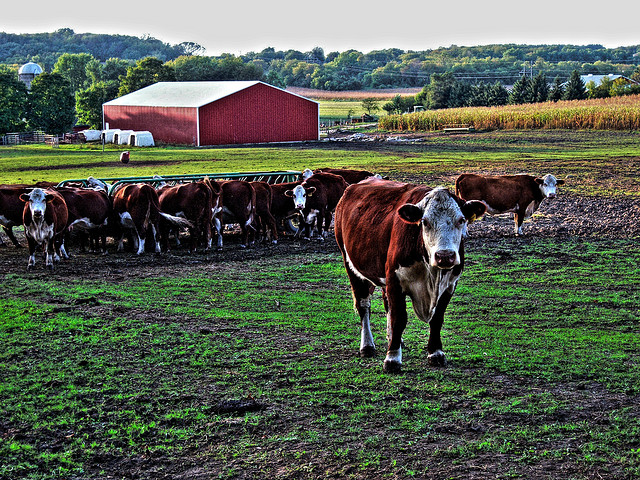Chip in to keep stories like these coming.
Trade did not begin when the Canada-U.S. Free Trade Agreement was signed in 1989, and neither will it stop if the Trans Pacific Partnership (TPP) is not signed.
Trade agreements’ investor protection clauses that enable corporations to force governments to compensate them when social or environmental policy impedes profits are contrary to democratic values.
Today, Canada’s supply management system is under attack. Some trading partners, such as New Zealand and the U.S. want to sell their dairy products to Canadians, and lobbyists from other sectors within Canada would like to sacrifice the supply managed sectors as a way to obtain benefits for their own sectors.
While CETA, the TPP and NAFTA are called “trade” deals, they are really sets of rules that limit governments and empower corporations. The corporate sector may make profits the top priority, but for Canadians, it is common sense to guarantee that our people can rely on both the quality and quantity of food produced by our farmers.
Canadians support supply management for good reason. It is an innovative solution, first developed in Ontario and Quebec in the 1960s.
Supply management addressed the problems that led to both milk shortages and over-production and waste, along with uncertain, volatile incomes for dairy farmers. Prices were often below the cost of production and at times, processors would turn farmers away.
Elsewhere in Canada fresh milk supply was inconsistent, sometimes with no milk available at all. Farm gate prices also fluctuated seasonally.
In 1969, in exchange for a commitment by all dairy farmers to apply production discipline, the governments of Ontario and Quebec implemented supply management regulation for dairy. Other provinces soon followed.
Today’s dairy farmers supply a daily stream of fresh, high-quality milk. Their farms are highly sophisticated, capital intensive operations that require specialized, experienced labour and management. In exchange, they receive a price based on the cost of production. Unlike their European and U.S. counterparts, Canadian dairy farmers do not rely on government subsidies to make their living.
Canadian dairy processors also benefit from the predictability of milk supply, allowing them to run plants efficiently, using near full capacity year-round, unlike those in Europe and the U.S. Because it is so perishable, a constant, predictable supply of fresh milk is needed every day for efficient dairy processing.
To meet this need, dairy farmers must carefully plan for calving intervals, herd size, herd health, nutrition and feed inventory. The drive to efficiency in production is important, but is only truly valuable if real costs are reduced. Obtaining lower milk prices by compromising quality standards, off-loading environmental costs and under-paying labour is not progress. Subsidies provided in some but not all jurisdictions give the appearance of efficiency when costs are just shifted from the marketplace to the public purse.
We could be faced with severe food shortages in future. Over the last century, we have seen the total farm population implode from one-third of all income-earners to less than one percent being involved in agriculture today. Canada has a significant agricultural resource land base, but it takes vision and common sense to utilize the land’s potential.
Climate change adds to the challenges farmers are facing. Those who would put trade agreements such as the TPP ahead of having a made-in-Canada solution to the challenges of providing milk to the population must be confronted with serious questions. How fresh would imported milk be? How reliable would the supply be, and at what price? What kind of quality standards could consumers expect, and who would enforce them? What would the Canadian countryside look like? How would the local economy change after losing its local family-owned and operated dairy farms and their related employment?
The picture is uninviting at best, if not dangerous and bleak. Supply management has a proven record of providing the right amount of affordable, high quality dairy products at all times. Free trade deals like the TPP are not sacred cows, but do supply a lot of bull.
Jan Slomp is the President of the National Farmers Union.
Photo: flickr/ B Garrett



